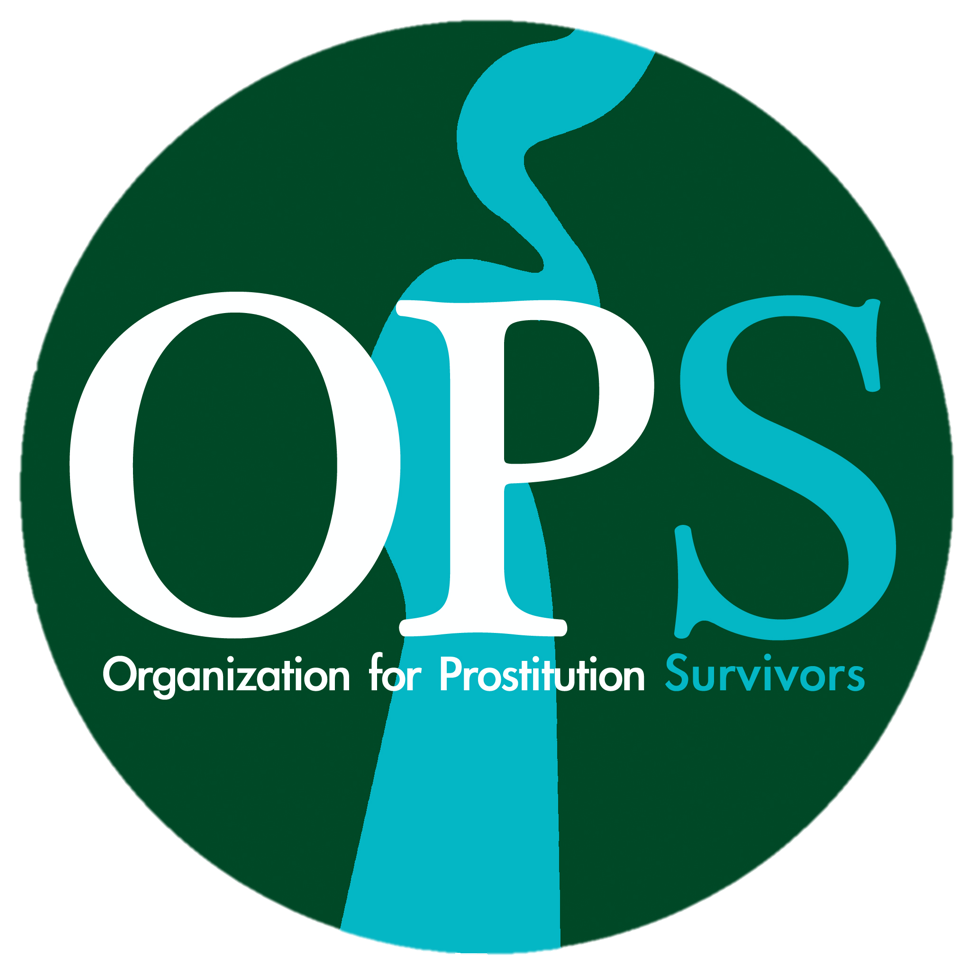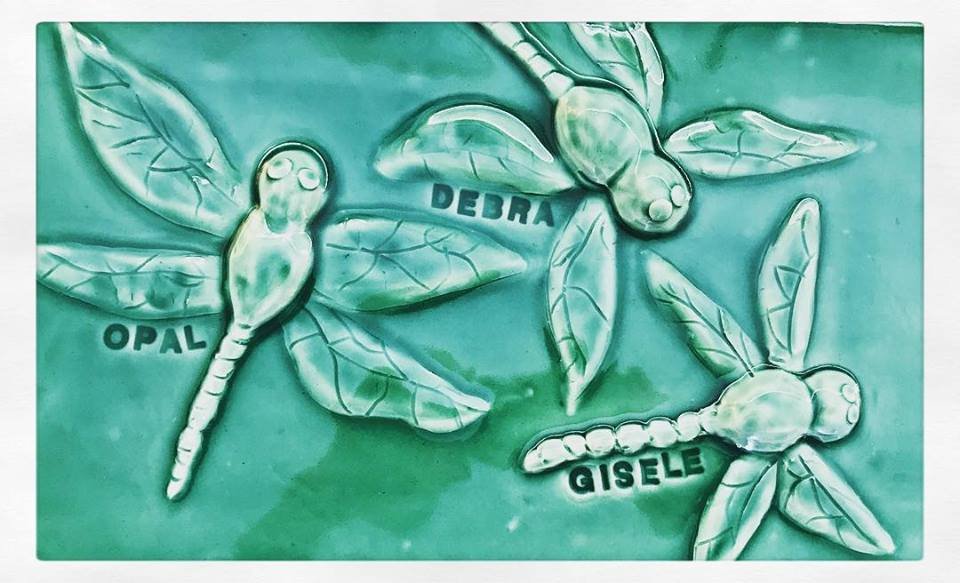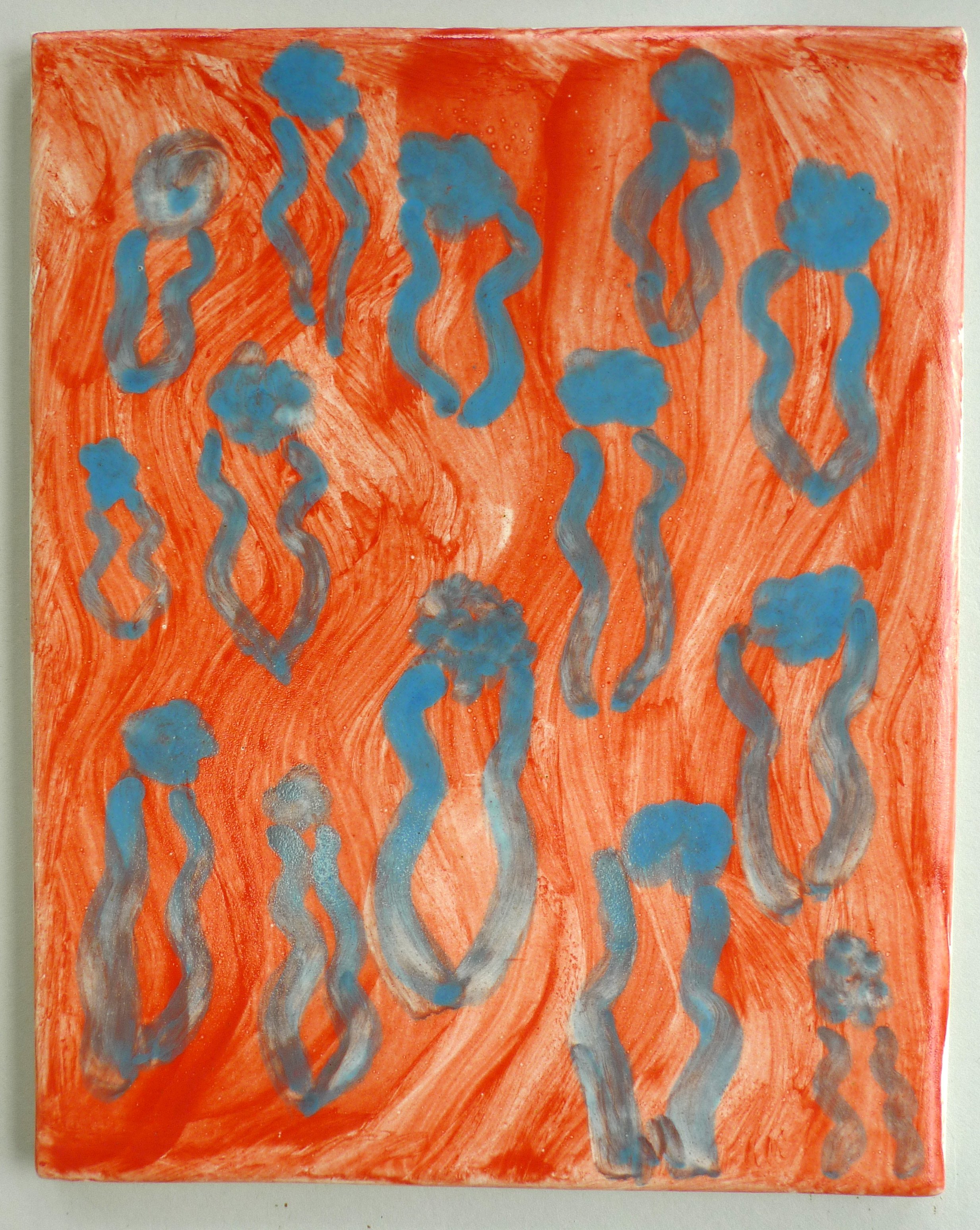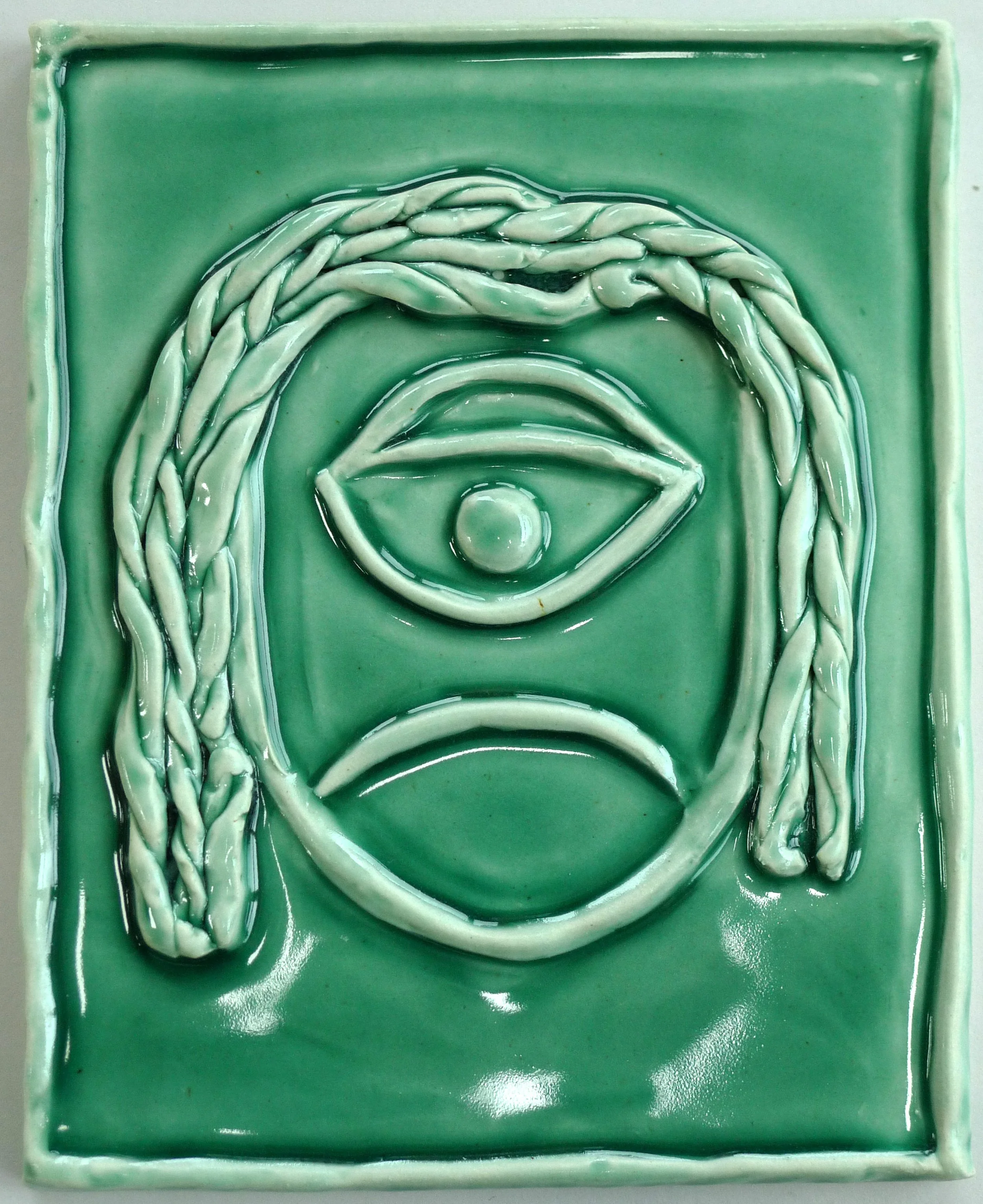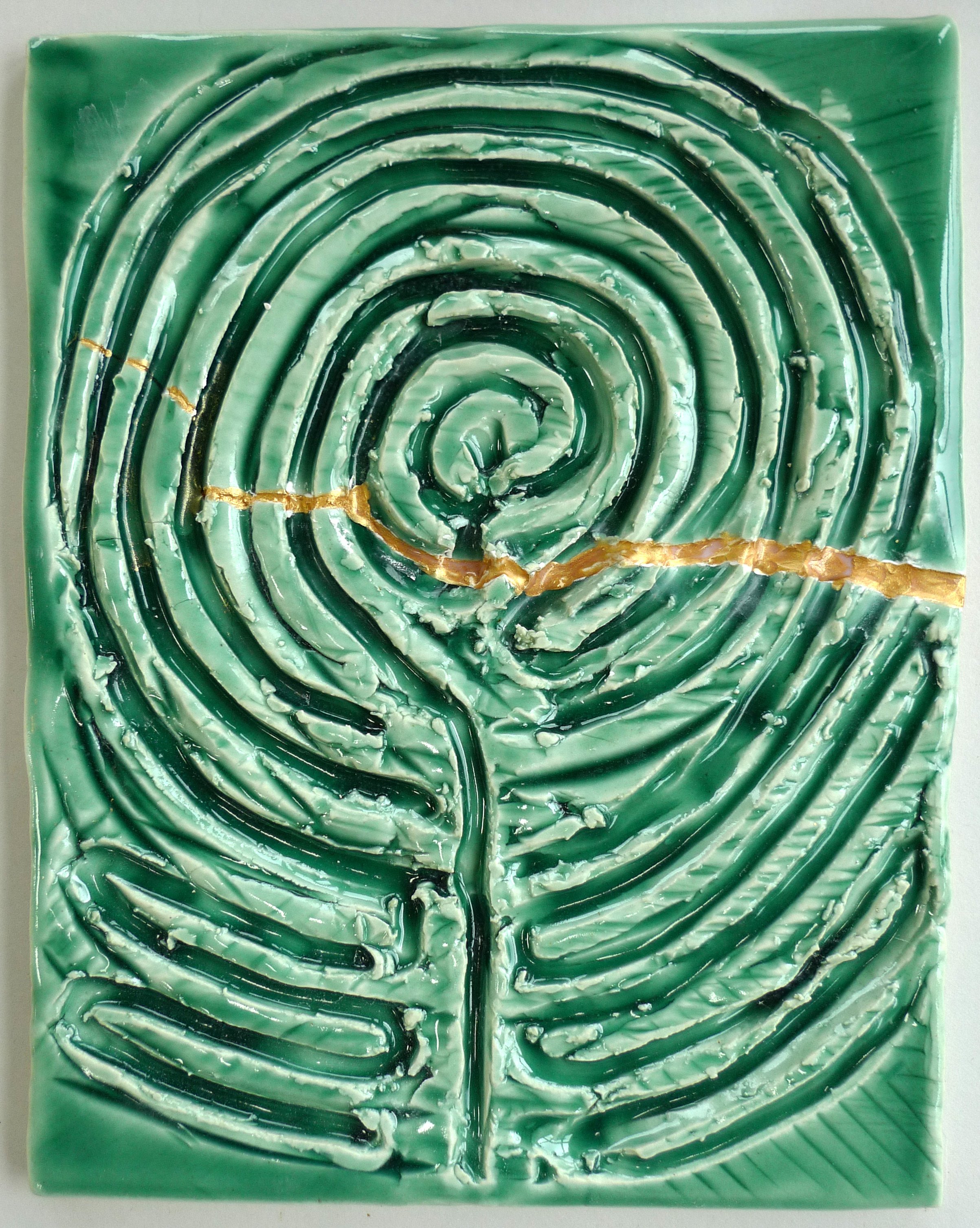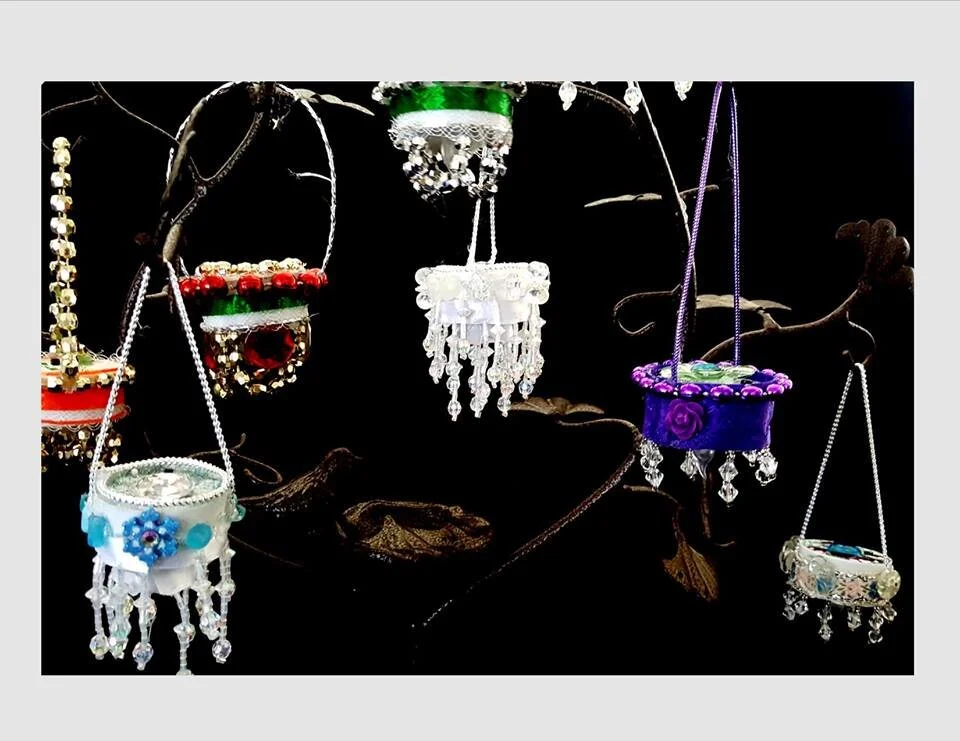OPS on KIRO7
INTERVIEW WITH REBEKAH FONDEN, OPS BOARD PRESIDENT
Nearly 100 people attended Together We Rise, a 3-hour sex trafficking awareness event on January 28 at Black Coffee Northwest in Shoreline. The event featured speakers, including new OPS Executive Director Rekina Perry and Black Coffee co-owner Darnesha Weary. In addition, there was a legal Trafficking 101 presentation, inspirational poetry, and testimonials from survivors.
Together We Rise Celebration
January 28 at 5pm
Black Coffee NW
16743 Aurora Ave N
Shoreline, WA
Register
Please join us to celebrate our new Executive Director Rekina Perry, learn more about our work, and raise awareness to human trafficking
Featuring:
Food & Drinks
Performances
Silent Auction by OPS Artists
Speakers and Presentations
New Leadership at OPS
In early 2023, Rekina Perry will be taking over as Executive Director at OPS!
Rekina has been part of the OPS community for years, and there could not be a more perfect next step for this organization.
We’ll be holding an event (date TBA) to celebrate Rekina and OPS, and will share much more information then. In the meantime, Rekina has shared a little about her vision and priorities for OPS.
This includes increasing support for staff, promoting equitable and livable wages, and providing structure amid the transitions. “If the people who are doing this work are not taken care of, it trickles down to the survivors we serve. And we want to support the survivors the most, that’s paramount,” Rekina said, addressing the impact that wellness among staff has on the work we do.
Rekina is also interested in raising awareness about OPS, stating, “A lot of people need to know there is an organization like OPS. We’re one of a kind, honestly.” Rekina shared the impact OPS had on her and how the women who worked with her, including some current staff, were a huge part of her own journey. She sees this in the way OPS as a community supports survivors, stating, “We ride with these women no matter what.”
One important aspect of OPS that Rekina wanted to highlight is its goal to meet people where they are at. “The one thing I love about this program is we help people wherever they are,” Rekina said. “They have the compass, right, they let us know where they are and what they need help with.” This nonjudgmental approach to service delivery is one Rekina wants to use to run OPS as well. She argues that unconditional love and a safe, judgement-free space allows us to improve ourselves and strengthen community. “The things that are uncomfortable help us grow and really help us expand our perception of good, bad — of the judgments that we made.”
Please join us in welcoming Rekina to her new role!
Statement on Dobbs v. Jackson Women's Health Organization Decision
Written by Rekina Perry
The Organization for Prostitution Survivor’s mission is to accompany survivors of prostitution in creating and sustaining efforts to heal from, and end, the practice of gender-based violence. OPS is survivor-founded, survivor-led, staffed predominately by survivors, and we elevate survivors in all we do.
In response to the overturning of Roe v. Wade, OPS and its staff feel it is imperative to state our position, and plan to respond to this unsettling and distressing decision. We firmly believe that all survivors have a right to safety, autonomy, economic security, and full agency. Safety requires economic security and this requires undoing racialized harm. We stand on our beliefs that all women should have access to care and resources that relate to their overall wellbeing, and we at OPS will continue to provide resources to populations impacted by this decision. With regard to racialized injustices and marginalized populations, we realize that this group is a majority of whom we serve.
We believe that the decision to end the right to access abortion is an attack on women and an attempt to seek and capitalize on systems that promote power and control, which is rooted in gender-based violence. The consequences stemming from the overturning of Roe v. Wade will be markedly grave. In response, we at OPS are willing to be creative in the catalyzation of solutions and will continue to stand in solidarity with survivors during the times ahead.
| | | | | | | | | | | | | |
Overturning Roe v. Wade will negatively impact women’s safety, autonomy, economic security, full agency, and will disproportionately impact BIPOC women, CSE survivors, survivors of all violence against women and gender-based violence, and those who hold other intersecting and overlapping marginalized identities. We are working to create a response to the anticipated influx of calls from out-of-state survivors seeking abortions. We also know that this decision will put a strain on our healthcare systems, and survivors will need additional information, support, resources, and accompaniment to navigate birth control, abortion, and other reproductive health practices. We will continue to incorporate these important supports into our services.
Please follow us, stay informed, and if you would like to take action click here to give to OPS.
“Coyote”
Written By Martha Linehan
Coyote
A coyote came right up onto our deck the other night
It was a sign of luck and fair warning
We try to keep the cats in after dark but they slip out just to take it all in
We don’t leave food around for the wildlife anymore
Hunger is power
Outrage is a gift
The price we all pay for the killing
The invasive procedures
The illegal abortions
The Black Codes
The guns
The blood
The catcalls
The gentrification
The lynchings
The apathy
All of it
Outrage is a gift
There are many ways to do battle
MML
5/30/22, 6/12/22, 6/24/2022
Raven Talk, QAWQS: Art, Healing, & Transformation AT OPS
June 18, 2022 at 2pm
Register here
Join OPS staff and Raven Chronicles Press for this conversation about the role art plays at OPS. Nykki Canete will lead a discussion with other OPS staff, Martha Linehan, Rekina Perry, SarahAnn Hamilton, and Searetha Simons, on, among other topics, the art workshop and how art is used in their programming to facilitate healing and transformation for survivors.
Noel Gomez on “All the Way Authentic” Podcast
OPS founder and staff member Noel Gomez talks with OPS board member Kevin P. Henry in his podcast “All the Way Authentic.” Noel discusses commercial sexual exploitation, sex trafficking, preventing the exploitation of youth, ways to support survivors as they leave the life, and the book she is writing.
Below is a description from the show:
Noel Gomez knows from experience the danger and emotional trauma of being a victim of Human Trafficking. Today, she stands tall as a survivor and has spent years helping youth and women who have gotten out of "The Life." Noel is the co-founder of the Organization of Prostitution Survivors in Seattle, Washington. She talks candidly about the signs that someone is being trafficked and shares her wisdom on how to help survivors re-adjust and acclimate to a new life in society after they escape their trafficker.
Noel has unmatched knowledge and expertise around supporting commercially sexually exploited women, and especially understanding and responding to the needs of girls and other youth. In this episode she weaves her brilliant insight into these issue alongside her own experiences and history.
After you listen, be sure to check out the King County CSEC Task Force Podcast episodes that feature other OPS staff and partners, including advocates Chelsea Olsen and SarahAnn Harris Hamilton.
“The Shadow Girls” Podcast
OPS staff, including our founder Noel Gomez along with Doris Beamon and Martha Linehan, are featured throughout a new podcast about the women victimized by the Green River Killer.
Amid all of the media about the Green River Killer, it is so important to remember the women who were killed, know their names, understand them as individuals, and work to ensure similar acts of violence do not continue. We need to keep centering survivors and those who support them in these discussions and honor that they are experts in these issues.
Here is a description from the podcast producers:
Secretly, the Green River Killer case haunted Carolyn Ossorio’s childhood and adolescence…growing up near Gary Ridgway's hunting grounds, where he preyed on vulnerable teens and young women, strangling them, stripping their bodies of all earthly possessions and leaving them in the river and green spaces. 49 victims...and yet the first name most think of is, Gary Ridgway. As a little girl, Carolyn never forgot how his victims were portrayed as "bad girls." The message was clear: that's what would happen to you if you were a bad girl. Decades later, during the Covid lockdown, Carolyn embarked on a deep dive into the nearly 20-year investigation, that journey would uncover never heard before audio, a long buried secret of her own and the hard truth: that bad things still happen to girls…whether they are good or bad has nothing to do with it.
You can listen to episodes as they are released here.
Please note that this podcast discusses explicit acts of violence against women and could be uncomfortable, upsetting, or triggering to survivors and other listeners. Below are some resources for support and self-care:
King County Crisis Connections (211 or 866-427-4747)
KCSARC Guide to Responding to Stress for Sexual Assault Survivors
”7 Tools for Managing Traumatic Stress” from NAMI
Call us (206-853-6243) to speak with an advocate
OPS formed the Green River Victims Memorial, a series of tiles created by survivors in dedication to those who lost their lives. A selection of these tiles is on view at the University of Washington’s School of Social Work.
Tiles by NM, Doris Beamon, Searetha Simons, and MW
“To the Survivor it May Concern”
Written By SarahAnn Harris Hamilton
To the Survivor it may concern:
I would bet my last dollar that you are reading this with a heavy heart. A heavy heart that not many would ever understand. A heavy heart only another survivor would know about.
I know that misfortune all to well. I had a love affair with that misfortune, held hands and kicked cans with that misfortune. That is why I am composing this letter with magic ink on pages of opportunity.
This is my love letter to you. A love letter filled with the things I wish someone would have told me.
Documented truth about what the “game” really is. The lies it tells you. A list of the silly rules some monster with a pinky ring whispered in your ear.
I strongly believe that this information should be printed on paper, bond in a pink book. Then it should be placed in the motel that rents by the hour or the 4-star hotel. It should be kept in the nightstand right alongside the bible.
Survivor written versus that will be passed on to whomever needs to hear them. Tales filled with hope and endless joy. Powerful, meaningful words.
Words like you Matter.
Money is nothing but dirty paper.
You are Mighty.
You are the bravest soul I know.
You are much more than your War stories.
Love cost nothing
You will fit in a square world.
Written testimonies of escape and families being restored.
A special book written just for you.
To the survivor that is reading this right now.
Telling tales of triumph.
You are a happy ending.
Chicken Soup for the survivor soul.
Your who saves the day, the hero.
You are the reason why stories are told.
Your story will unlock something in someone who is trapped in the trap.
Your story will remind someone of their worth.
We are the greatest story ever told, the only story worth hearing.
You are pretty pages and lovely letters.
You are worth reading.
Sincerely the Survivor who wrote this
SarahAnn H.Hamilton
Survivor Advocate / Survivor / Artist
Interview with the Advocates
Interview with OPS Advocates
OPS advocates Rekina Perry, Chelsea Olsen, and SarahAnn Harris Hamilton talk about their work, the strength of survivors, what makes OPS different, and how they look out for themselves and others
Art by OPS participant AP
What do you want people to know about your work?
Chelsea:
There are so many barriers in the systems of trying to help the women that we service. A lot of times I feel like I’m coming up against a wall. That’s the part that is exhausting: constantly feeling like I’m fighting to get my clients’ basic needs met. It shouldn’t be that difficult, and that is frustrating. I think the cool part about OPS and the work we do is we get to be in this role with the women we serve for a lifetime (if they want it) and have these relationships that are built by really seeing each other. There are youth I’ve worked with since they were 15 and now they’re 21 — at OPS there is no age limit so I can continue with clients. Also there is no requirement or you need to do x-y-z in order for us to work with you. We really meet people where they are at, and I think that’s really powerful. There are no stipulations on us helping the clients that we serve. A lot of the work I do, I have to hold for my clients to realize their own journeys and realize their worth, and empower them in that. That means continuing to fight those systems even though some days it feels really hopeless. That’s what we are; we’re advocates advocating for our clients’ dreams and their feelings in a system that says they don’t matter.
Rekina:
The work we do is not just a quick fix. It’s not like regular social service agencies where people come, get benefits, and leave. It’s an ongoing, continuing service where we meet people where they are. It’s not like a regular social service agency. People don’t come in the door, get services, and leave. Sometimes it takes years to get people in a place where they can be self-sufficient, empowered, and move on to another stage of their life. I’m speaking from experience and from my work, being an advocate over the last year. I have many participants who are very much still in the middle of their process and need continuing services to help them get to a place of self-sufficiency. This is important to highlight because the more people we get to understand that, the better we are able to address the needs of our participants in a well-rounded way. The fact that we work with survivors, it is very difficult to get them in through the county ways of entering services, like housing and all of these things. They score based on how many resources a person already takes advantage of, which really doesn’t say anything about the kind of help that they need. The fact that people are accessing services does not mean they are in any way ready to do this on their own. If they access services their score drops, which is ridiculous. The level of organizational trauma is such that by the time they get to us that we sometimes have to work 10x harder to build trust. They’ve been turned away from so many organizations based on what they’ve done to survive. We have to prove our own commitment in order to accompany them. Some of the smallest things, like helping someone with a gas card, it basically kept them from going out and busting a date, from giving their soul to one more person. The level of organizational trauma they have when they’ve come to us, and hearing ‘no, no, no,’ from other organizations, I wish people shifted their perspective to see that as an asset instead of a disqualifier to services.
SarahAnn:
People don’t realize that we are working with a community that is basically on the bottom of the totem pole. Not only do we work with women of color but they are also survivors. Sometimes it feels impossible because we already have all of these stigmas against us anyways. I don’t think people realize how hard we work. I think the thing that sets us apart from other places is we are not here to build numbers, we are here to build a community, and I think that is a huge difference. I hate to go here, but I constantly, everyday, have someone in tears because we don’t have a group to go to right now [due to COVID closure]. We built this community that really looks out for each other even if it’s just for the time they’re in the building, and these little moments save lives. This is also my favorite thing about OPS: when I come back in it has the same faces. I think we are so different from everyone else, but we’re in this line of work where we’ve been told to be quiet for so long and I think it’s really time to be vocal about what we do and how important it is.
That’s what we are; we’re advocates advocating for our clients’ dreams and their feelings in a system that says they don’t matter.
CHELSEA
What strengths do you bring to this work?
SarahAnn:
I think as a whole the fact that we’re survivors, we really speak the same language and I think that in itself is very, very powerful. I think that’s what we bring to the table, and I think it’s not brought to the table enough so we’re really winning in that aspect. Another thing I love about us: Rekina is amazing with resources, she kills it, and Chelsea is with youth. I was in the game very young and things would have been so different if I had a Chelsea. And I’m really good at working with people who are in the mix and in crisis. That combination is a powerhouse right there. Sometimes I feel like OPS doesn’t get enough credit. Sometimes I think we don’t realize what we’re sitting on. I feel like we need to be louder.
Chelsea:
The lived experience piece, I want to echo that. There is something powerful in that. I call it the wounded healer, and part of that is the lived experience. Communities, like 12 step communities, are places where people get to a place in their healing where they give back and help others, and that’s how people stay sober. There’s no price on someone who has been there, sitting there with you and saying “I did this too.” You know how a lot of people in social work say, “I get it”? One of my client says [in response], “Bitch, you don’t.” But then says, “with you I finally feel seen and understood.” As far as my personal strengths, I feel like I hold a lot of empathy and I hold a lot of perspective, and I feel like — it’s weird talking about my own strengths, I don’t want to be out here saying like ‘I’m great’ (SarahAnn: But you are great) — I think the biggest thing is I have that gift of connection, connecting with people, bringing forward love and acceptance, and not a lot of people can connect with you like that. And I really connect with the kids, and they want to see me. I think that’s a big — I don’t know what that is, but I feel like that’s a strength.
Rekina:
We are genuine. I believe that we believe in our services so much, and I believe in and am proud of OPS, and that comes across in a whole different way, and being able to talk to people about the organization and what we offer. They say in recovery to base things on attraction rather than promotion, there is attraction to everything that is in OPS. Participants love OPS, they will ride for OPS; I think that comes across, and that we believe in the place that we work. That is very rare to believe in the place that we work, for the most part. I also think we all have kind of an intermediate skill set for strategic planning. It probably doesn’t seem like this when we do it on the back end, but we do it. We have experience with crises, so from this point in all of our journeys we can help navigate a lot of the systems we’ve had to fight ourselves. I believe that’s a huge skillset that we don’t always give ourselves credit for. We come up with a plan, execute it, and can be flexible at the same time because we have to be flexible.
So from this point in all of our journeys we can help navigate a lot of the systems we’ve had to fight ourselves.
REKINA
What kind of resilience/strength do you see in your role?
SarahAnn:
They make something out of nothing, constantly. Sometimes it’s hard to watch because you want to help, you know, but sometimes it’s very endearing. To be at a Thursday group and see that yeah, we advocate for them, but they advocate for each other. To watch them do that is amazing for me. To hear clients say, “I helped so and so,” they really come together and help. I love to see it because at the end of the day the only thing that’s going to bring us any progress is community. Because that’s what saved me, that’s what gave me hope. Then we definitely don’t have that clinical feel, which is nice. They don’t get enough credit and we don’t get enough credit
Rekina:
Yeah, single mothers going to school and living through the pandemic.
Chelsea:
I think about this a lot when I’m in [clinical meetings] and all these white clinicians that are using terms and then my youth, which primarily all my youth are Black girls, and they’re on there like, “what does that mean?” It’s just interesting to see. And I feel like there is a thing about OPS and the power of community and, like you said, making something out of nothing. I think about my youth who are in the system sleeping in hotels, sleeping in cars, with social workers, and going to school, not having a stable place to live, but still fighting for their dreams.
We’ve been told to be quiet for so long and I think it’s really time to be vocal about what we do and how important it is.
SARAHANN
What does self-care look like for you?
Rekina:
Self-care looks like work for me. Self-care for me is working on myself. Like Chelsea was saying, that wounded healer thing is real, a lot of my scars haven’t healed yet. I’m still processing and coming to terms with things that are finally settling in. I do a lot of work on myself so that I can speak from a position of power over the things that have kept me down in the past and will continue to keep me down if I don’t address them. I do this extra work on myself, there are days that I stay up late and I’m digging deep into some reading that I’m doing to make sense of myself. To me it’s also work, to try to disconnect from the work at the end of the day. Self-care for me is a different type of work, but continuing to work on myself so I can continue to be this wounded healer, or a less-wounded healer.
SarahAnn:
It’s hard work. Self-care is hard work. I’m kind of where Rekina is. I used to think it was going to Ross and things like that, but it’s not. It’s staying clean and sober, being honest, holding yourself accountable, it’s all that. It’s searching for the best version of you basically. Which I think is hard for survivors because we’ve been taught that there is no best version. To me that’s what it is. I wish it was just going to the nail shop, I’d be really good at it then. And I think too that self-care has to be separating yourself at some point. As hard as it seems, when 5pm hits I have to turn my phone off because I’ll sit here all night long wondering where everyone is, how they are doing. At the same time I think that’s one of our strengths because I was that way in the life. You kind of bring the same skills [to this work,] you don’t realize you have the same skills. I think also as survivors it kind of feels like all eyes are on you anyways, so it’s really hard to be vulnerable. It’s really hard to say, “I’m having a hard day,” because a lot of people, especially allies, are looking at you thinking, “she’s going to drop the ball.” So it’s really hard to be vulnerable and to be that way when there’s a whole group of people already waiting for you to drop the ball. Self-care becomes very important because you kind of ignore your triggers because you don’t want to seem weak or like you can’t do this.
Chelsea:
What self-care means to me is doing the work I really don’t want to do, and it’s not — like SarahAnn was saying — it’s not bubble baths or getting my nails done. Really what it is is going within myself and healing those versions of myself so that I don’t project that onto my clients. I think that that’s super important, and when I feel myself getting really worked up about a single client I have to stop and think what’s coming up for me, because they’re a mirror of what’s unhealed for me. Being vulnerable with my support system, and allowing myself that space or giving myself permission to take space or to rest. I have this productivity guilt, if I’m just resting I feel guilty, so working through that. Also participating in my spiritual community. I’ve been taking a class in shamanic healing and I’m in my second year now, really connecting with that as part of my healing. Self-care, I think we don’t talk about it enough in social work, and especially being a survivor doing this work, we don’t talk about it enough. Sel-care and what it means, and how it’s a daily practice. It’s having those rituals that I start my day with, it’s a daily thing. Feeling my feelings and setting intentions every day for myself, and yeah that separation is so important and holding that boundary. You know, my phone’s going to be off at this time or I can’t talk right at this moment, holding those boundaries is so important. It’s also modeling. When I take care of myself I’m modeling to my clients that it’s okay to take care of themselves and it’s okay to have boundaries. A lot of our clients don’t know how to assert boundaries, and have just been used and abused, and so we get to hold that and model that. So it’s also helping them even if they’re like, “fuck you.” That’s a loaded topic and it looks different for everyone, but it’s doing that work. Unfortunately the reality is people knowing you’re a survivor, they form their own biases about you and project that even if they don’t know that they’re doing that, and they just automatically assume. You have to work 10x harder as a survivor in this work under those other agencies and people, you have to work 10x harder because automatically knowing you’re a survivor they have those biases about you. And that’s heavy. Like when you’re a survivor and you’re five minutes late for a meeting they’re like, “oh of course she’s late.” If you show any emotion they’re like, “oh she’s triggered.” No, I’m fucking human. There is a lot of stigma and people think they have you already figured out, and that is sort of the challenge in being a survivor and doing this work, you’re coming up against people who are also working with survivors but put you in a lesser category.
What have you been listening to/watching/reading/seeing/doing lately?
Rekina:
Qveen Herby, she has this meditation. She has a lot of stuff that’s really motivating or powerful, and I do this meditation of hers every day called “Good Morning.” It helps me start my day and get in a mindset for the day. It’s a lot of women empowerment type music.
SarahAnn:
I’ve been painting a lot, I’ve been seeing my creative mentor every Friday which has been amazing. So I’ve painted a lot. That’s very healing for me, that’s where it all started for me, so yeah I paint a lot. I’ve been into tarot cards lately, they’ve been speaking for me.
Chelsea:
I’ve been making candles, and I’ve kind of realized I hadn’t been making them for a while and also that I want to continue that as a practice. Tapping into my creativity brings me so much joy and effort. Also I’ve been journaling every morning and I’m getting into The Artist’s Way, it talks about the morning pages which is a practice every day where you just write intuitively so I’ve been getting really into that. I kind of mix it up every day. Sundays I want to listen to old school R&B and hip hop, other days I want to do a sort of grunge era, like PJRB. Watering my plants and doing my altar. I go on walks every day.
__________________________________________
OPS relies on the support of our community to continue serving participants and providing women with a place that feels like home to aid their healing. The pandemic has had a substantial impact on our budget, both due to the availability of funding as well as an increased need to provide financial support to participants. OPS is also striving to increase the ways we engage with community members and grassroots groups, and rely on mutual support throughout the region. Please be on the lookout for more opportunities for engagement, including remote and in-person events and trainings.
You can support us as we steer towards these new engagements by making a personal donation. We know that this past year has impacted individual funds in many ways, and welcome any support people can provide: through an individual financial donation, encouraging philanthropic engagement with our organization, volunteering or joining our Board of Directors, or spreading the word about OPS and its services.
